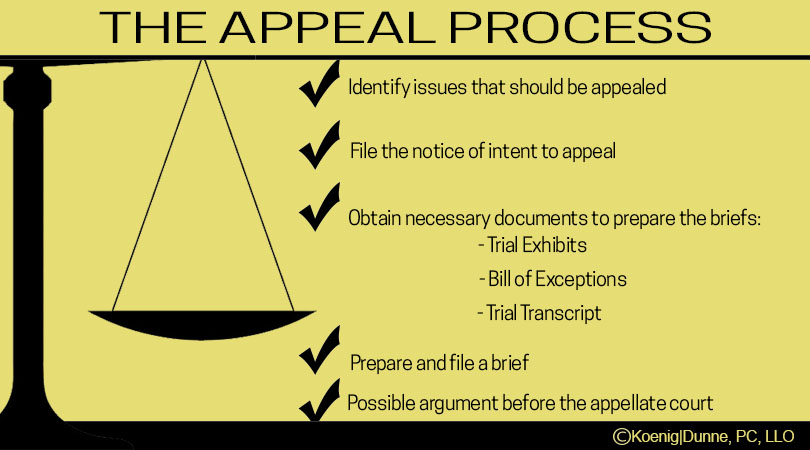If the judge made major decisions following your trial with which you seriously disagree, you may consider an appeal to the Nebraska Court of Appeals.
People can appeal when they believe the judge made a mistake or misinterpreted the law as it pertains to the facts. Whatever the reasons for the court’s rulings, you may feel that the judge’s decisions are not ones that you can live with. If this is the case, you must talk to your lawyer immediately about your right to appeal.
You have 30 days after the court enters its final order to file a Notice of Appeal. If an appeals deadline is missed, your right to appeal is lost.
Not all orders entered during your divorce are appealable. Only final orders that end the litigation may be appealed. Temporary orders are not appealable because they are just that – temporary. If you are unhappy with the outcome of your temporary order, keep in mind that you will have the opportunity to negotiate or litigate for a different outcome at trial.
The appeals process can take anywhere from several months to well over a year. An appeal may also result in the appellate court requiring further proceedings by the trial court, which can result in further delay.
There are many steps that your lawyer will take on your behalf in the appeal process, such as:
- Identify the issues to be appealed;
- File a notice with the court of your intent to appeal;
- Obtain the necessary court documents and trial exhibits to send to the appellate court;
- Obtain the trial “bill of exceptions,” which is the written copy of testimony by the witnesses and statements by the judge and lawyers made in the presence of the court reporter;
- Obtain the trial transcript, which is a copy of the pleadings and orders filed throughout the case;
- Perform legal research to support your arguments on appeal;
- Prepare and filing a brief, which sets forth the facts of the case, errors made by the trial court, and relevant law, complete with citations to the court transcript and bill of exceptions, court documents, and prior cases; and
- Make an oral argument before the judges of the appellate court.
Filing and pursuing an appeal is expensive. In addition to the filing fees and lawyers fees, there is likely to be a substantial cost for the preparation of the transcript of trial testimony.
Your Koenig│Dunne family law attorneys are exceptionally skilled in appellate work. Consult with us today if you believe you have suffered an unfair outcome and wish to discuss an appeal.
Lindsay Belmont

